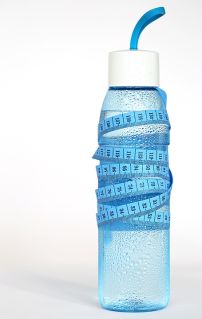
Picture this: you are out with your baby for a walk and it’s 100 degrees! Your baby starts getting thirsty, and just as you’re about to reach for his water, you realize you’ve left it at home. You now have no other option but to pop into a supermarket and buy bottled water for babies.
But Wait. Can Babies Drink Bottled Water?
This is a serious predicament that many first-time parents deal with. You want to give your baby the best care and nutrition, so it’s natural to ask yourself whether bottled water is as safe as boiled, purified drinking water that you use at home. But there’s an overwhelming amount of information on the internet as well, so what do you go with? Looks like it’s time to sort out this mess.
To answer your question in a single word, yes, babies can drink bottled water. But there are many factors to consider before buying whatever bottle your hand reaches first.
Babies & Distilled Water
It is true that all pediatricians recommend distilled water for babies formula, especially those on formula and rice cereal. This is because distilled water is the purest form of water (so to speak) and essentially does not contain any mineral content. Babies definitely require minerals, but they do not need to get it from the water, as formula and rice cereal have just the right blend of minerals in them. So, if you think about it, giving your baby regular bottled or tap water, you’re running the risk of creating a case of mineral overdose for them, which is not good.
Babies & Bottled Water
So, let’s see if we’ve got this straight: babies can consume bottled water (provided they are older than six months), but only when necessary. For instance, the scenario of a hot, sunny day where you’ve forgotten your baby’s water bottle would be a necessity. The US Food and Drugs Administration (FDA) mentions that low-fluoride bottled water can be given to babies only in urgent cases, or when felt necessary. The UK Government’s National Health Services (NHS), on the other hand, mentions that even bottled water must be boiled first before allowing a baby to consume it.
Why this restriction, one might ask? Simply because babies have sensitive digestive and immune systems. They grow over time and during its growing stages, it is crucial to keep an eye out for contaminated water- you do NOT want your baby coming in contact with untested well water, for instance, because this can result in harmful repercussions.
Types of Bottled Water in Supermarkets
So, now your baby is dehydrated and needs water, so you step into a supermarket and see different types of bottled water. Mineral water, packaged drinking water, distilled water, and so forth. What do you choose?
Let us first understand the difference between the three:
• Mineral water contains high quantities of minerals, as the name suggests.
• Packaged drinking water may be known as packaged water, packaged purified water, or just purified water. This water contains some natural minerals to enhance its taste.
• Distilled water has been dubbed “the purest form of water” by many for good reason. It does not contain any dissolved minerals or gases.
Even though we have already established that distilled water may be the right option for your child, when looking to buy bottled water in a supermarket, your best option might be mineral or packaged drinking water.
The Bottled Water Requirement for Babies
There is a standard to be met when considering safe drinking bottled water for babies. According to the NHS and FDA, these requirements include:
• Low levels of sulfate (less than 250 mg per liter of water)
• Low levels of sodium (less than 250 mg per liter of water)
• Low levels of fluoride: There are low-fluoride options available in packaged drinking water, that contains about 0.11 mg of fluoride per liter of water, which is safe for babies.
To conclude, keep in mind that drinking water is an important source of fluids for a growing baby (above six months), and therefore, you must be careful what you’re letting them consume. Bottled water is a safe alternative if you do not have access to clean drinking water. But ensure to check the levels of mineral salts in the water before giving it to your baby.


 Posted in
Posted in